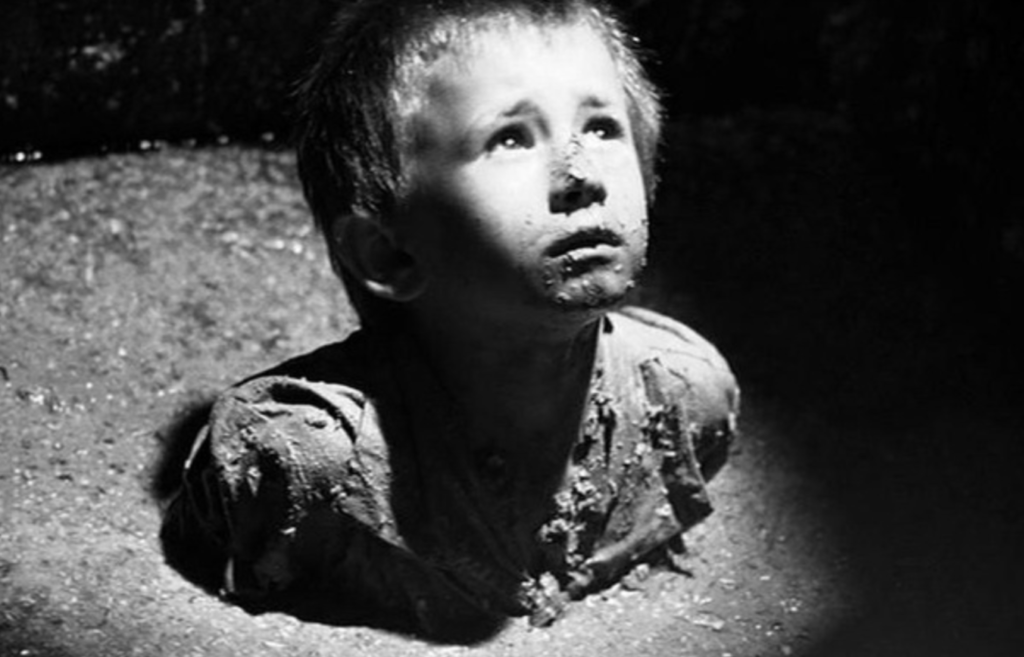The line between the MPAA’s R and PG-13 ratings has been a critical factor in the production of mainstream films over the past several decades. When it comes to the genre of historical drama, there is an even deeper debate as to how much “R-rated” content you should include without losing its message. This is, of course, the subject of this hot take on Christopher Nolan‘s latest film, Oppenheimer.
A Balance of Art and Profits
No doubt the subject matter plays a significant role in determining whether or not an R rating is necessary.
For instance, making a PG-13 Schindler’s List would be considered unthinkable because the subject matter involves the forced labor and genocide of the Holocaust – very disturbing themes that wouldn’t have been appropriately explored if the concern wasn’t rated R. The MPAA’s rating standards would simply not allow a true depiction of the horrors victims of the Holocaust went through.

Many big-budget productions avoid the R rating because they are not as profitable theatrically. For many film companies, PG-13 is the default for a “general audience” these days.
For most of his career, Christopher Nolan’s films have been on bankable PG-13 rating for several films such as his Dark Knight trilogy, Inception, and Tenant which makes it curious why he chose this particular film for his first R-rated feature.
The Ten Three Commandments of an R-rating

While the MPAA tends to be quite arbitrary at times, we all know that films that earn the “R” rating typically reduce down to having at least one of these 3 elements.
- Graphic depictions of violence. Dismemberment is allowed, but blood and gore are not.
- Excessive profanity. You get exactly 1 “f*ck”, but an apparently infinite amount of “sh*t”s.
- Graphic depictions of sex or prominent nudity.
In the case of Oppenheimer, this film only seems to barely include the latter. That is to say, SEX.

This is something that has me feeling conflicted about Oppenheimer as it is considered by many to be Christopher Nolan’s magnum opus from its storytelling, editing, and A-list cast. However, there have been some notable criticisms regarding depicting certain scenes.
I am, of course, talking about the sex scenes between costars Cillian Murphy’s Robert Oppenheimer and Florence Pugh‘s real-life counterpart Jean Tatlock, with whom Oppenheimer had an on-again, off-again affair. Those scenes, to some, came out of nowhere and were so jarring, almost to the point of laughter. I certainly did.
However, outside of those scenes, the rest of the movie was otherwise very tame, as there was no excessive swearing or violence. In fact, I can only recall 2 or 3 f-bombs in the entire movie. This means Oppenheimer is rated only because of those scenes alone. This, of course, led people to ask: “Was that really necessary?”.
Cons
It certainly caused controversy in India when it included Oppenheimer’s famous quote he lifted from the Hindu Scripture, specifically Bhagavad Gita “Now I have become death; the destroyer of worlds”. The issue with that scene is he’s trying to look at that book without looking at his partner’s “things”. Needless to say, people felt such an important quote didn’t need to be in such a kinky scene. No doubt people would have questioned if it was in a scene more appropriate.
On some level, I can somewhat agree with some of the backlash uttered since they don’t connect with the rest of the plot. I almost wonder because Nolan wanted his own “Titanic drawing scene”. Amusingly in some international releases, they had to censure some frontal scenes with a CGI dress.

The Issue some critics take is this is not a film that warrants this content, as it’s supposed to be about the creation of the atomic bomb. Similar films such as The Imitation Game and Monuments Men don’t need to insert random sex and nudity. Perhaps if it took place in a more battlefield setting where desperate human nature is unleashed, it would be more warranted, but so far as the script is concerned, it’s just about the building of the atomic bomb and the ramifications attached.
Pros
All that said, I’m willing to accept such scenes as there’s still an artistic purpose behind them. Not necessarily for the plot, but is essential in exploring Oppenheimer as a person and how others see him. It is, after all, about Oppenheimer. His name is the title, after all.
Perhaps the scene that best “exposes” this was the scene where Oppe is in a closed hearing where he’s forced to admit his casual affairs in front of these people, including his wife Kitty. Needless to say, the scenes told in flashbacks are physically coming back to haunt Oppe years later.
And the reason why this scene was effective was that it was the only scene from the perspective of Kitty (Emily Blunt). No doubt she felt devastated by her husband’s exploits she was left hanging on during their marriage, and now it’s come back, haunting her in that very room.
As shocking as those scenes may be, they do serve a purpose. The first was to show how Oppenheimer was an excessive womanizer, as even after being married to Kitty, his old habits never went away fully. The second is to illustrate the complexity of old flings that some people can’t escape from. Nolen films are all about complex themes. What better to display that than to people who like to chat naked on a couch?
Do I believe that these “gratuitous” scenes were unnecessary? Yes.
Do I believe including these scenes had artistic merit? Also yes.
Conclusion
Regardless of whether or not the scene was necessary, it is clearly art. This is a director’s vision fully unleashed without the constraints of the Hollywood bureaucracy. Sometimes a movie is worth watching just to see directors release their full vision, even if it’s somewhat misguided.
Despite box office concerns on a post-pandemic media landscape, Oppenheimer shows that R Rated movies can still make money at the box office. So long as Films can portray a complex story
This is why the scenes I just talked about are not the focus of other reviews. Oppenheimer is, for all of its questionable choices, a modern classic that could undoubtedly be one of the best films of this decade.


